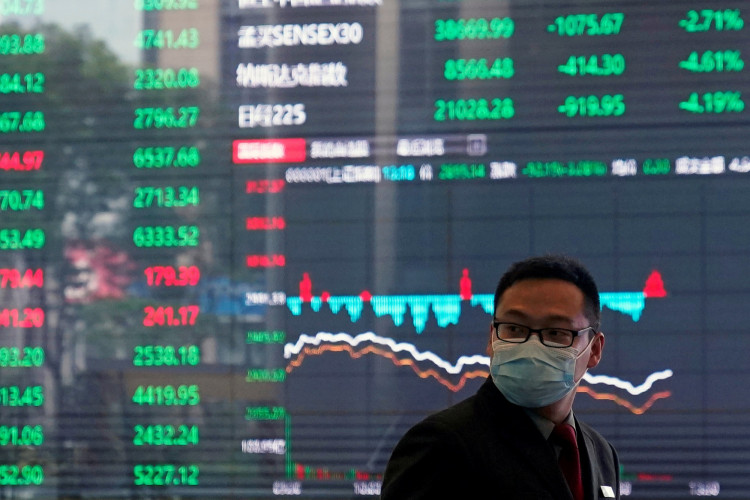Chinese citizens have turned to the US Embassy in Beijing's Weibo account, employing it as a platform to articulate their discontent amidst the nation's stock market turmoil and broader economic distress. This unconventional method of protest underscores the profound frustration among the Chinese populace and their resourcefulness in circumventing the government's stringent censorship apparatus.
As China's stock market continues its downward trajectory, with the Shanghai and Shenzhen indexes experiencing significant declines, a post on the US Embassy's Weibo account about conservation efforts for wild giraffes in Africa unexpectedly became a magnet for comments expressing economic grievances. The post, originally aimed at highlighting wildlife protection, was inundated with over 160,000 comments, many of which bore no relation to the topic of giraffes.
One user's plea, "The US government, please help Chinese stock investors," encapsulates the sense of desperation pervading the investor community.
The severity of the economic situation is highlighted by the sharp downturn in the stock market, which saw more than a third of all stocks listed in China plummeting by over 10%. This market collapse has led to a staggering loss of approximately $6.1 trillion in market value from the Chinese and Hong Kong stock markets since their February 2021 peaks, reflecting deep-seated investor concerns over the government's ability to stabilize the market.
Despite repeated assurances from the China Securities Regulatory Commission to curb "abnormal fluctuations," the market's response suggests a pervasive lack of confidence among investors.
In a telling reflection of the prevailing market sentiment, a listed company advised investors to momentarily step away from the stock market, emphasizing the importance of personal well-being over financial pursuits. "Life is not only about the stock market, but also about parents, spouses, children, and friends," the company stated, urging investors to "temporarily leave the stock market, let go of their obsessions, change their mood, and welcome the New Year with a relaxed and peaceful mood."
The choice of the US Embassy's Weibo account as a venue for protest reveals the sophisticated measures Chinese citizens are adopting to navigate the tight censorship regime. With authorities intensifying their crackdown on dissent, disabling comments on regulatory accounts, and restricting prominent analysts, the public has turned to allegory and humor.
Phrases like "Arise! All giraffes who refuse to be slaves" cleverly repurpose lines from China's national anthem to veil critiques of the government's economic management, highlighting the creativity employed to voice dissent within the constraints of censorship.
This digital act of protest on a foreign embassy's social media page illuminates the deep-seated tensions within Chinese society regarding the economic trajectory and the government's iron grip on public discourse. As the Chinese government persists in promoting an optimistic economic narrative, the stark disparity between official statements and the public's sentiment becomes ever more pronounced.





